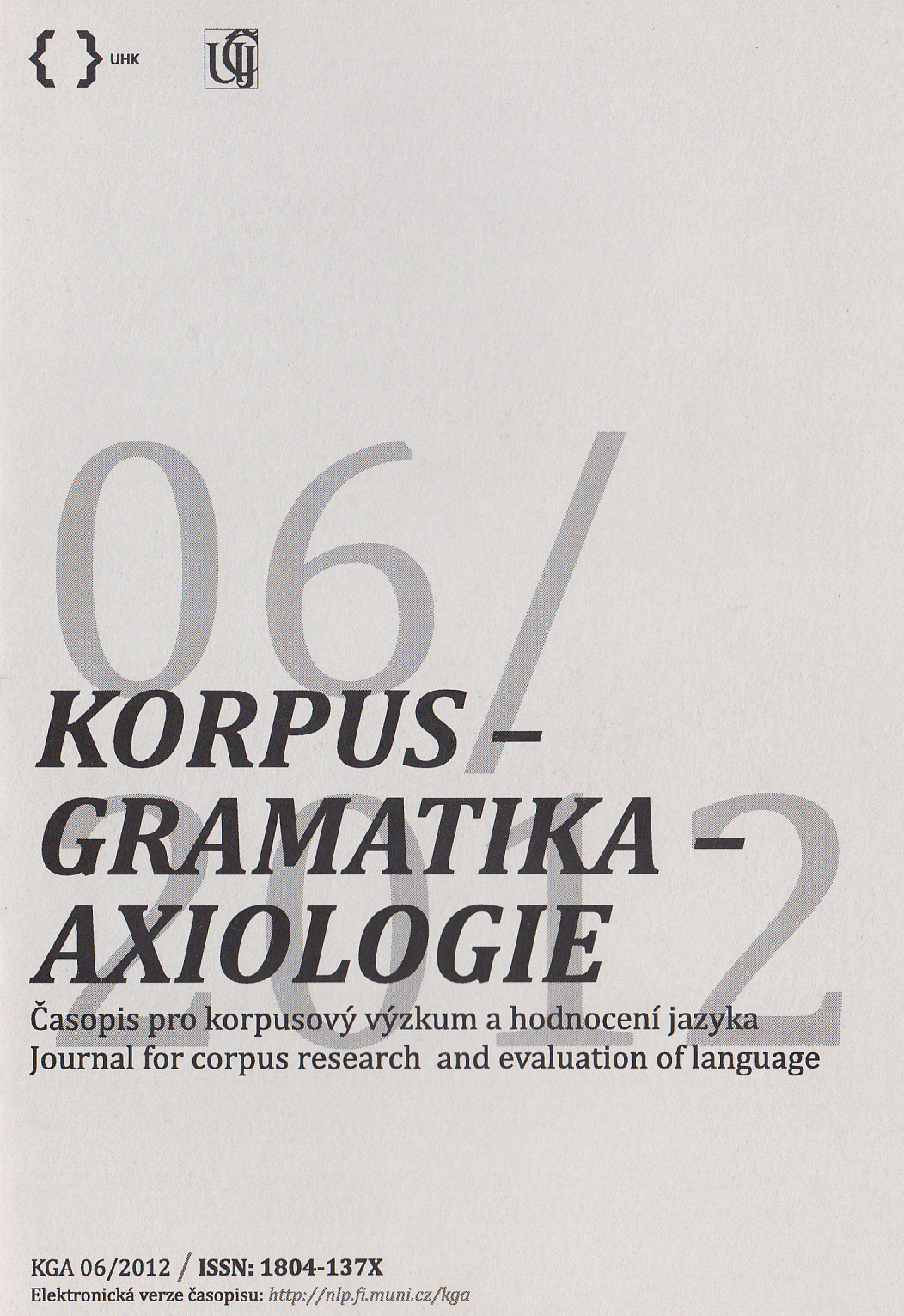Uplatnění částice bohužel (a bohudík) v současné psané publicistice
On the use of the particle bohužel (and bohudík) in contemporary written journalism
Author(s): Martin JanečkaSubject(s): Language studies, Language and Literature Studies, Applied Linguistics, Descriptive linguistics, Western Slavic Languages
Published by: AV ČR - Akademie věd České republiky - Ústav pro jazyk český
Keywords: particles; medial discourse; postural modality; semiotics; word classes
Summary/Abstract: Particles as an inflexible and synsemantic word class have already become a theme of many individual studies. According to the general definition particle indicates a relation of the speaker to the statement, he/she expresses modality of the sentence or emphasizes constituent of a/the sentence. Some of the particles have the validity of sentence, e. g. Ano. Nikoli. Zajisté. So called proper particles cannot stand in the function of another word class: ať, kéž. On the contrary, improper particles can be (according with coocurence) another word class, too: jistě, asi, prý. Goal of this paper is to point in which contexts the particle bohužel, although it is a non-sentence expression, can gain the character of sentence equivalent and which functions its synonyms and antonyms have.
Journal: Korpus - gramatika - axiologie
- Issue Year: 2012
- Issue No: 6
- Page Range: 10-19
- Page Count: 10
- Language: Czech

